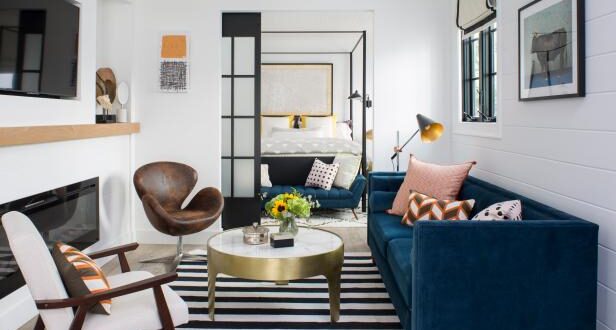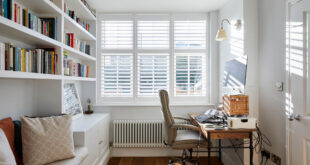Transforming Spaces: A Journey into Interior Decorating
Interior decorating, at its heart, is about crafting a space that resonates with you. It’s more than just arranging furniture; it’s about weaving together colors, textures, and personal touches to create a haven that reflects your personality, lifestyle, and aspirations. Whether you’re drawn to the sleek lines of modern design, the cozy warmth of a rustic aesthetic, or the vibrant energy of bohemian chic, the possibilities are truly endless. This guide is designed to spark your imagination and equip you with the knowledge you need to embark on your own decorating journey.
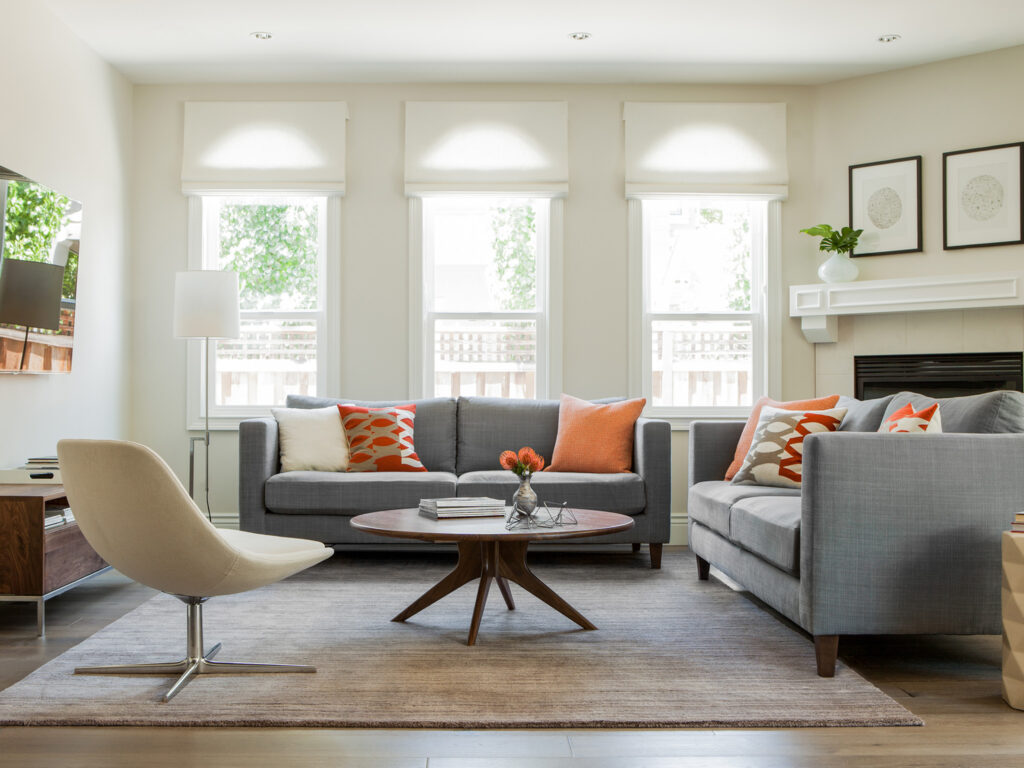
Forget those daunting images of perfectly styled magazine spreads. Decorating your home should be an enjoyable and fulfilling process, not a source of stress. The key is to approach it with a plan, a dash of creativity, and a willingness to experiment. We’ll explore various styles, offer practical tips, and provide inspiration to help you transform your house into a home you truly love.
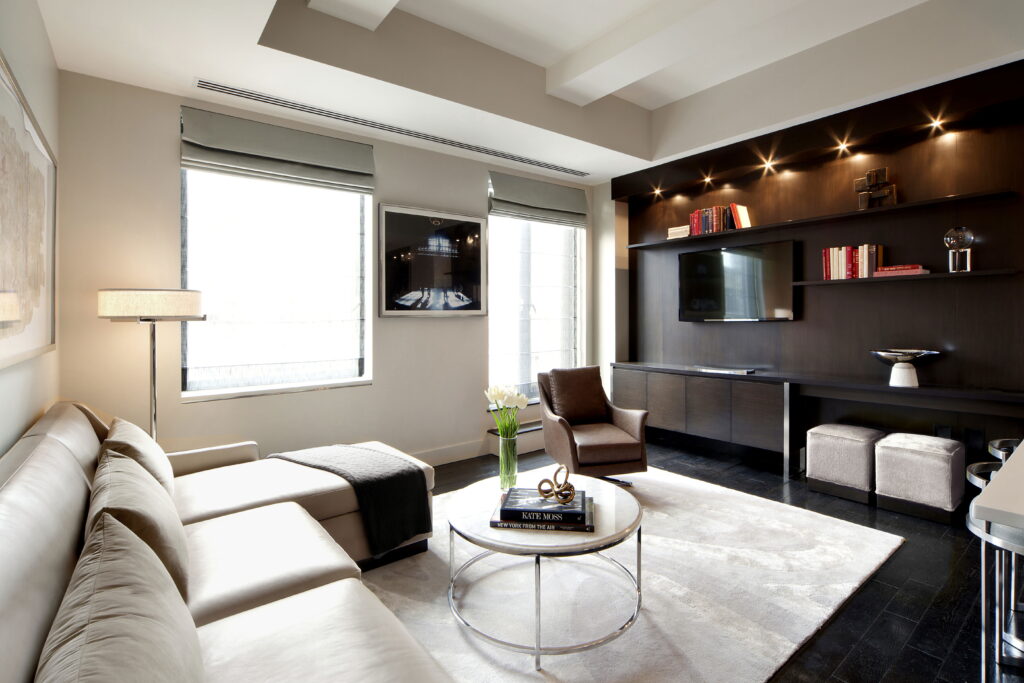
Understanding Your Style: Finding Your Decorating North Star
Before you even think about paint colors or furniture choices, it’s crucial to identify your personal style. This might seem daunting, but it’s simply a matter of reflecting on what appeals to you visually and emotionally. Ask yourself:
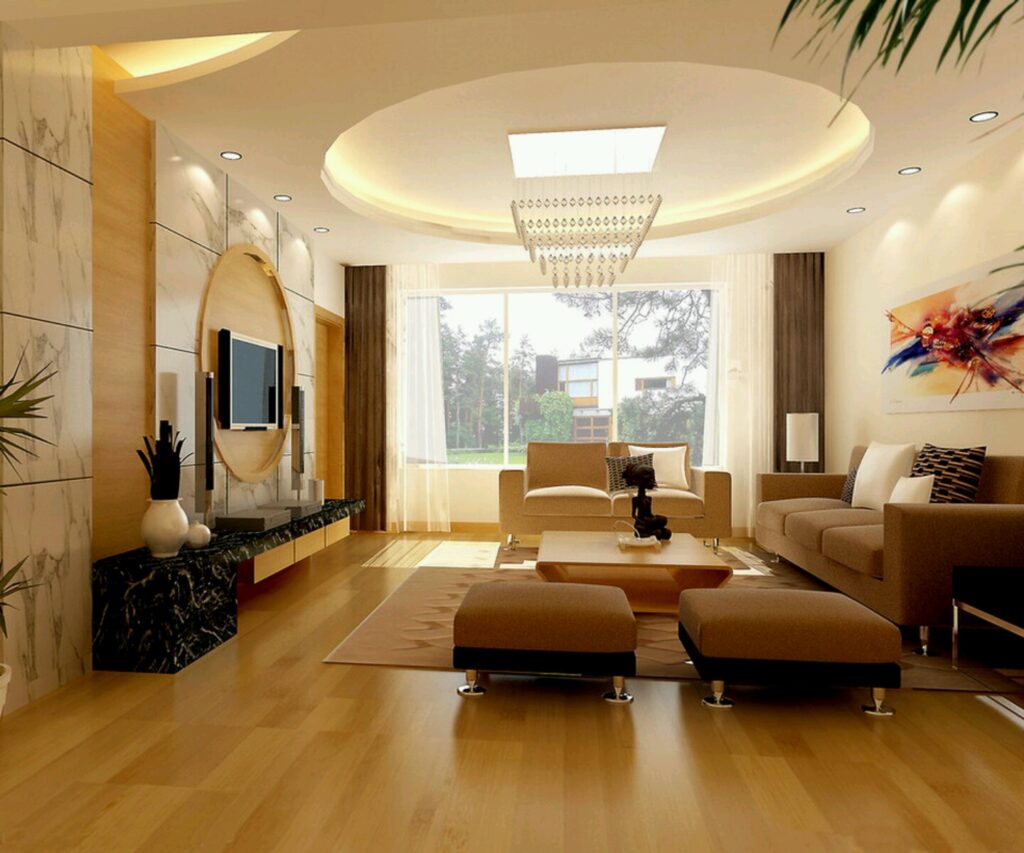
- What colors do I gravitate towards?
- What types of patterns or textures do I find most appealing?
- What kind of mood do I want to create in my home? Relaxing and serene? Energetic and vibrant?
- What are some of my favorite spaces, whether they’re in magazines, online, or in real life?
Consider creating a mood board, either physical or digital, using images that capture the essence of your desired style. Pinterest is an excellent resource for this. As you gather images, you’ll start to notice common threads and patterns, which will help you define your decorating preferences.
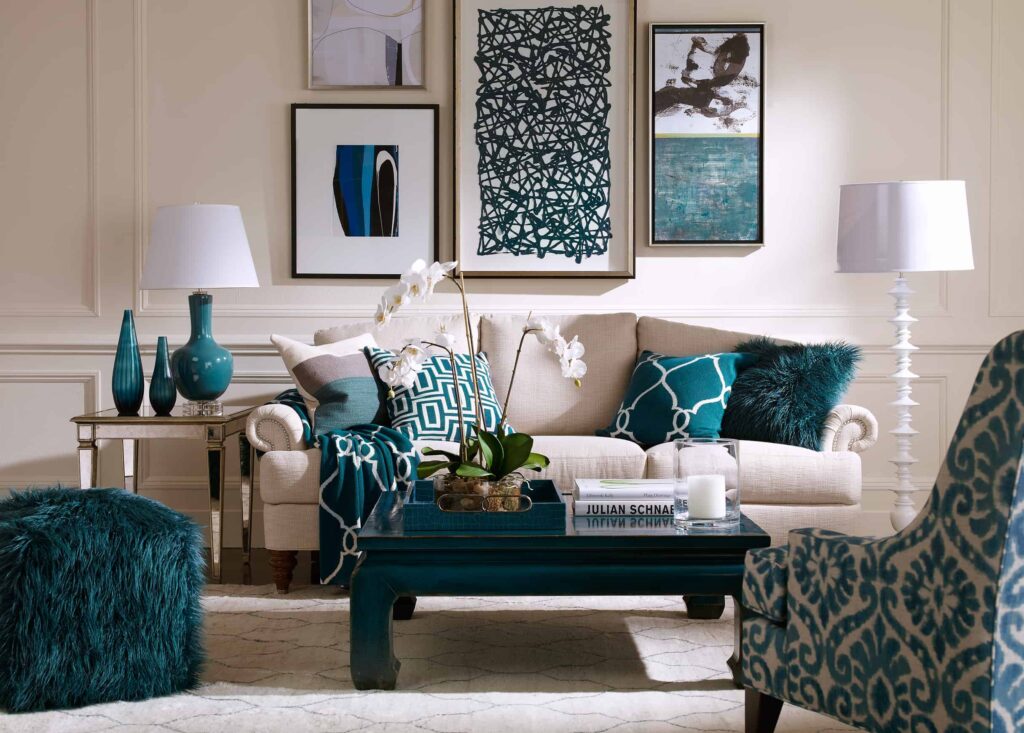
Exploring Different Decorating Styles: A World of Inspiration
Here’s a glimpse into some popular interior decorating styles:
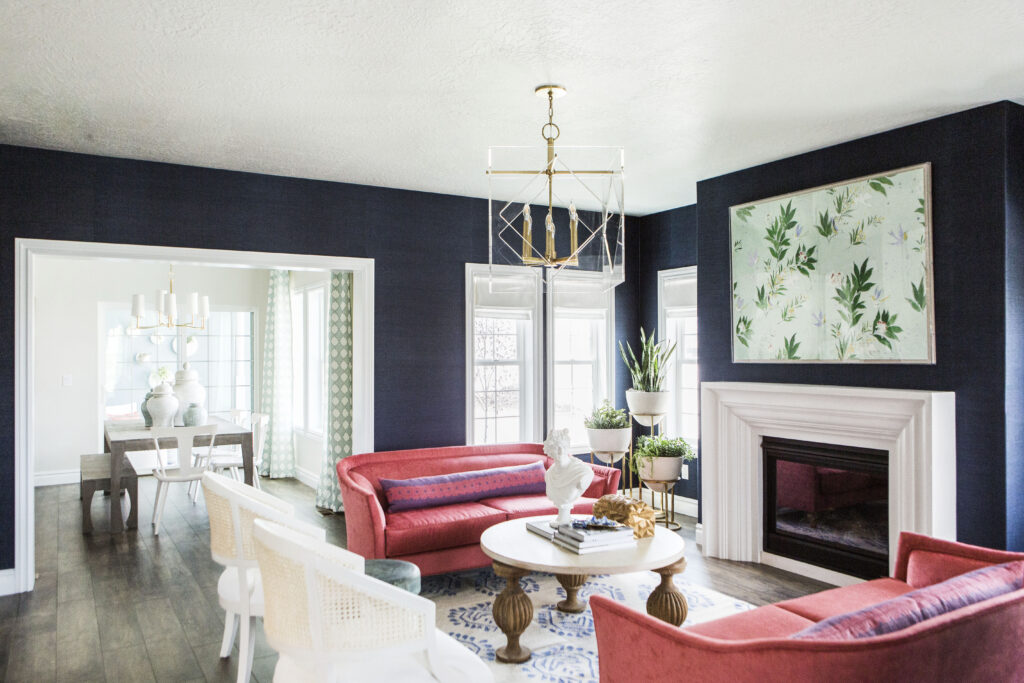
- Modern: Characterized by clean lines, minimalist aesthetics, and a focus on functionality. Think neutral colors, geometric shapes, and a clutter-free environment.
- Contemporary: A constantly evolving style that reflects current trends. It often incorporates elements of modern design but allows for more experimentation and personal expression.
- Traditional: Emphasizes elegance, formality, and timeless appeal. Features classic furniture, rich colors, and intricate details.
- Rustic: Embraces natural materials, raw textures, and a sense of warmth and comfort. Think wood, stone, and earthy tones.
- Bohemian: A free-spirited and eclectic style that celebrates individuality and self-expression. It incorporates vibrant colors, global patterns, and vintage finds.
- Minimalist: Stripped-down to its essentials, this style prioritizes simplicity, functionality, and a sense of calm. Neutral color palettes, clean lines, and carefully curated items are key.
- Scandinavian: Known for its functionality, simplicity, and connection to nature. Light and airy spaces, natural materials, and a focus on hygge (coziness) are hallmarks of this style.
- Industrial: Inspired by factories and warehouses, this style features exposed brick, concrete, metal, and reclaimed materials.
- Coastal/Nautical: Evokes the feeling of being by the sea with its light and airy color palettes, natural textures, and nautical-inspired accents.
- Mid-Century Modern: A throwback to the 1950s and 60s, this style features clean lines, organic shapes, and a focus on functionality.
Don’t feel limited to just one style! Many people prefer to mix and match elements from different styles to create a unique and personalized look.
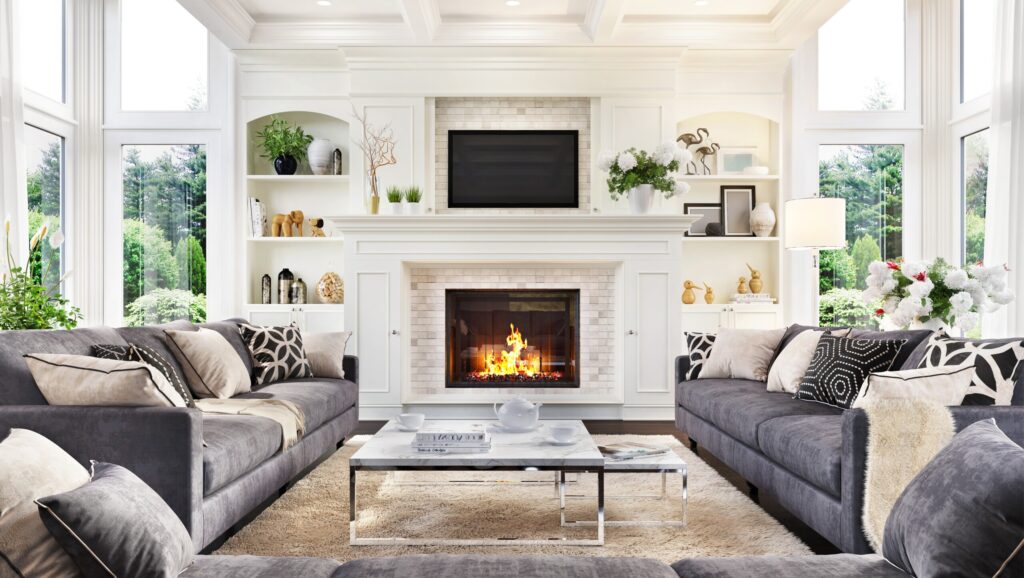
Color Theory: Painting the Perfect Picture
Color plays a vital role in interior decorating. It can affect our mood, create a sense of space, and tie a room together. Understanding the basics of color theory can help you make informed choices about your color palette.
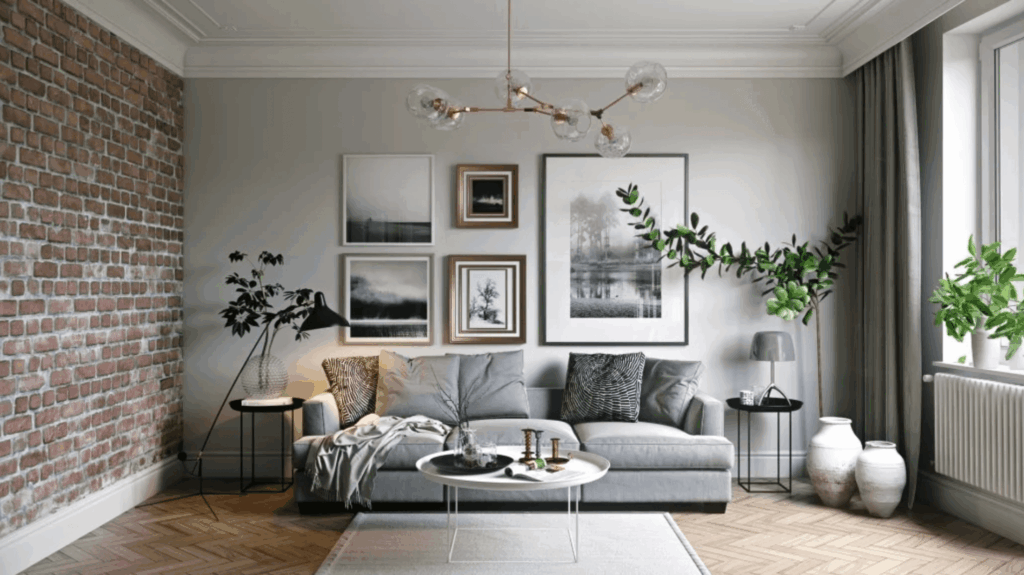
The Color Wheel: Your Guide to Harmonious Hues
The color wheel is a visual representation of colors arranged according to their chromatic relationship. It’s a valuable tool for understanding how colors interact with each other.
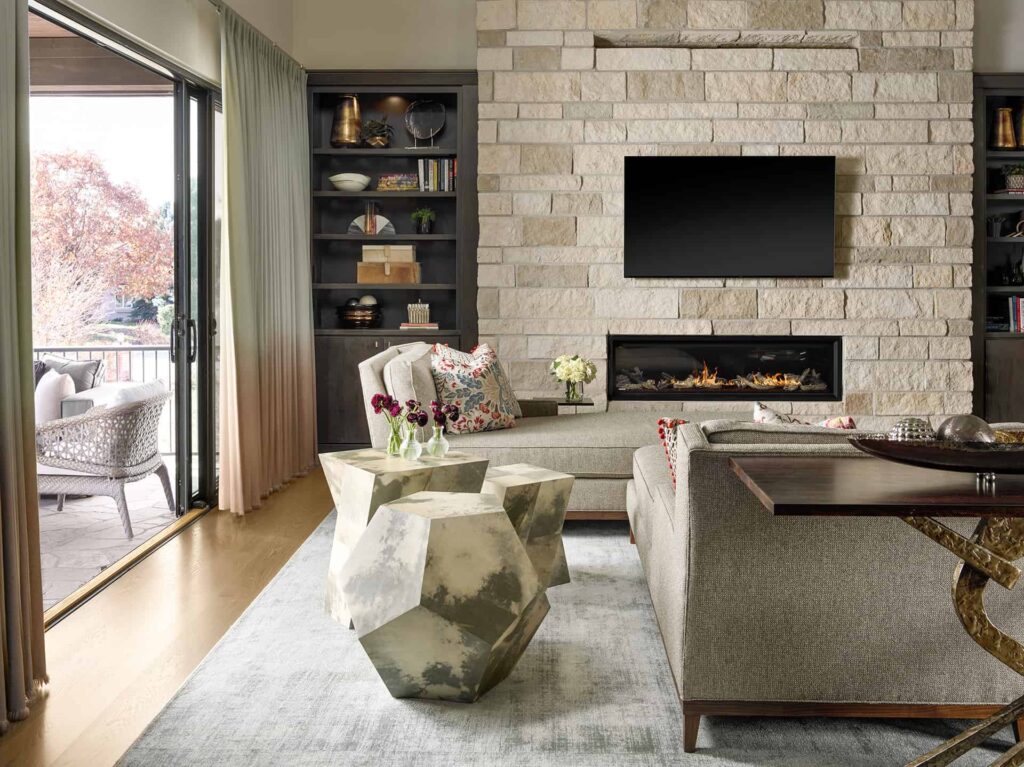
- Primary Colors: Red, yellow, and blue – the foundation of all other colors.
- Secondary Colors: Green, orange, and violet – created by mixing two primary colors.
- Tertiary Colors: Created by mixing a primary color with a neighboring secondary color (e.g., red-orange, blue-green).
Color Harmonies: Creating Visual Appeal
Color harmonies are combinations of colors that create a pleasing and balanced effect. Some common color harmonies include:
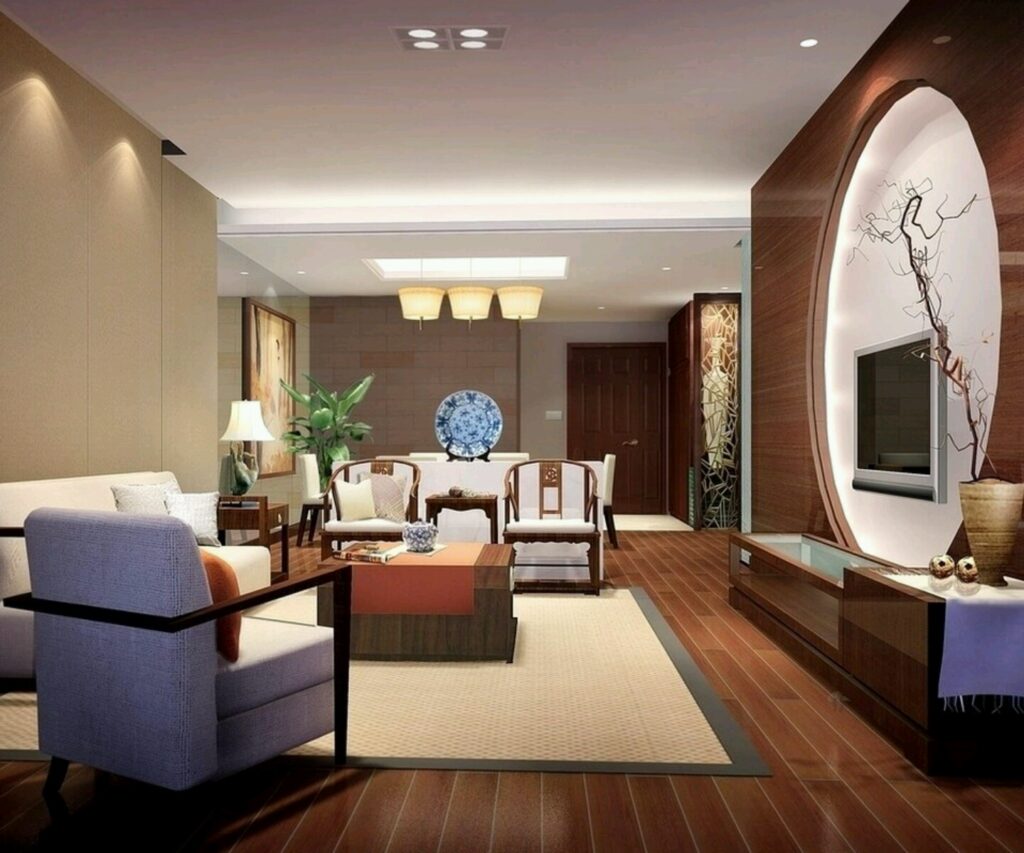
- Monochromatic: Uses different shades and tints of a single color. Creates a calming and cohesive look.
- Analogous: Uses colors that are next to each other on the color wheel (e.g., blue, blue-green, and green). Creates a harmonious and serene feel.
- Complementary: Uses colors that are opposite each other on the color wheel (e.g., red and green, blue and orange). Creates a vibrant and dynamic contrast.
- Triadic: Uses three colors that are equally spaced on the color wheel (e.g., red, yellow, and blue). Creates a balanced and playful effect.
Choosing the Right Colors for Your Space
Consider the following factors when choosing colors for your home:
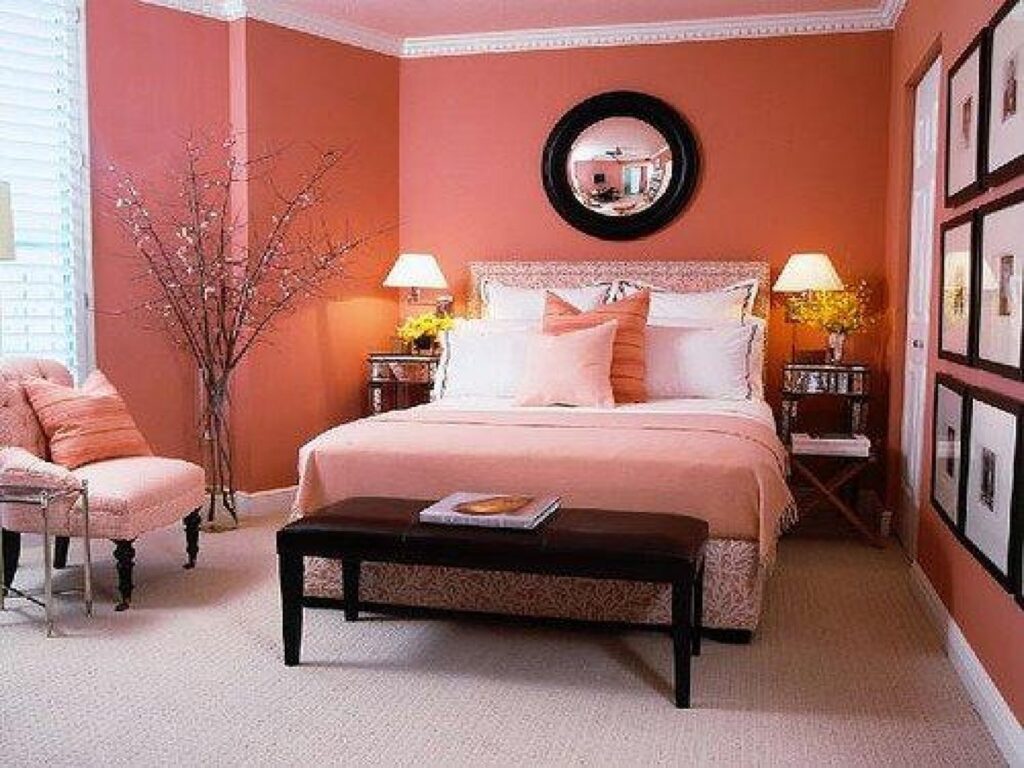
- Room Size: Lighter colors can make a small room feel larger and more open, while darker colors can make a large room feel cozier.
- Natural Light: The amount of natural light in a room can affect how colors appear. Test paint colors in different lighting conditions before committing to a color.
- Mood: Different colors evoke different emotions. For example, blue is often associated with calmness and serenity, while red is associated with energy and passion.
- Existing Furniture and Decor: Consider the colors of your existing furniture and decor when choosing a color palette. You want to create a cohesive and harmonious look.
Furniture Selection: The Foundation of Your Design
Furniture is the backbone of any interior decorating project. It provides functionality, defines the layout of a room, and contributes significantly to the overall aesthetic.
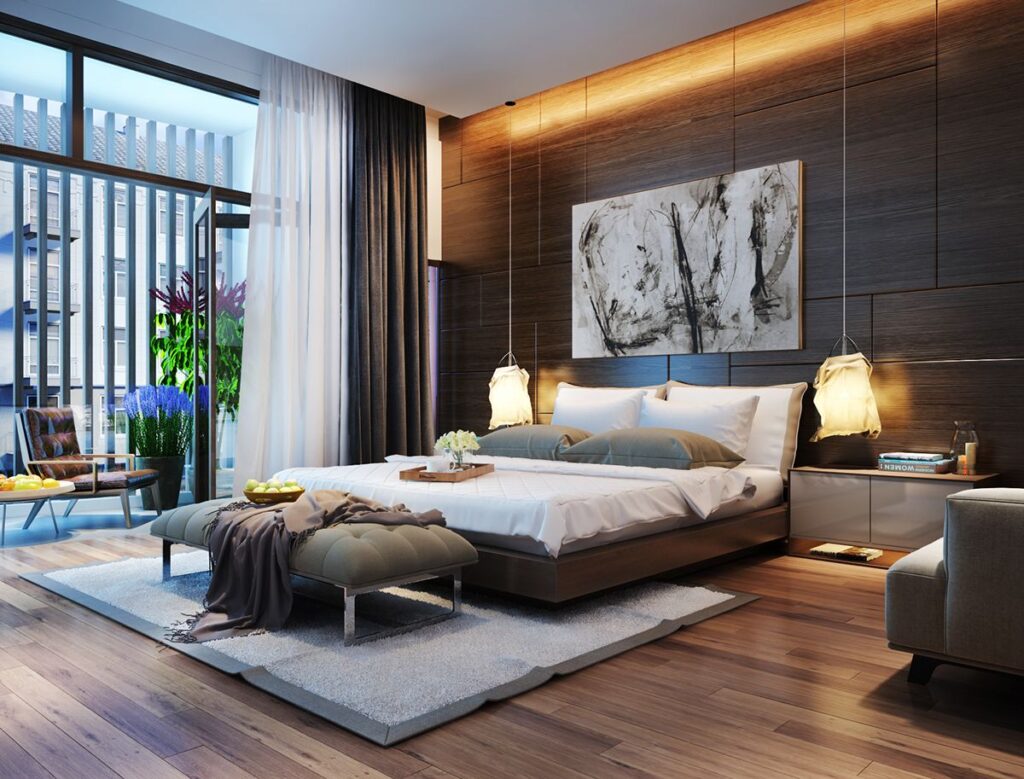
Prioritizing Comfort and Functionality
While aesthetics are important, comfort and functionality should be your top priorities when choosing furniture. Consider how you’ll be using the space and select furniture that meets your needs. A beautiful sofa is useless if it’s uncomfortable to sit on, and a stylish dining table is impractical if it’s too small to accommodate your family and friends.
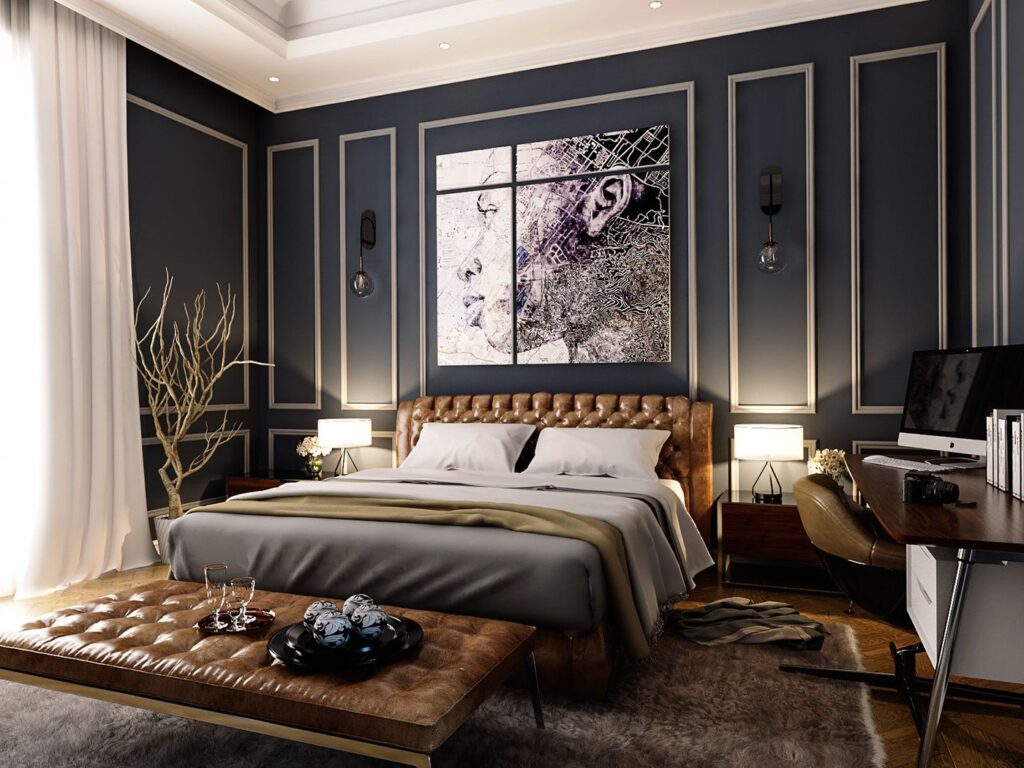
Scale and Proportion: Finding the Right Fit
The scale and proportion of your furniture are crucial for creating a balanced and harmonious space. Avoid overwhelming a small room with oversized furniture or using tiny furniture in a large room. Consider the dimensions of the room and choose furniture that is appropriately sized.
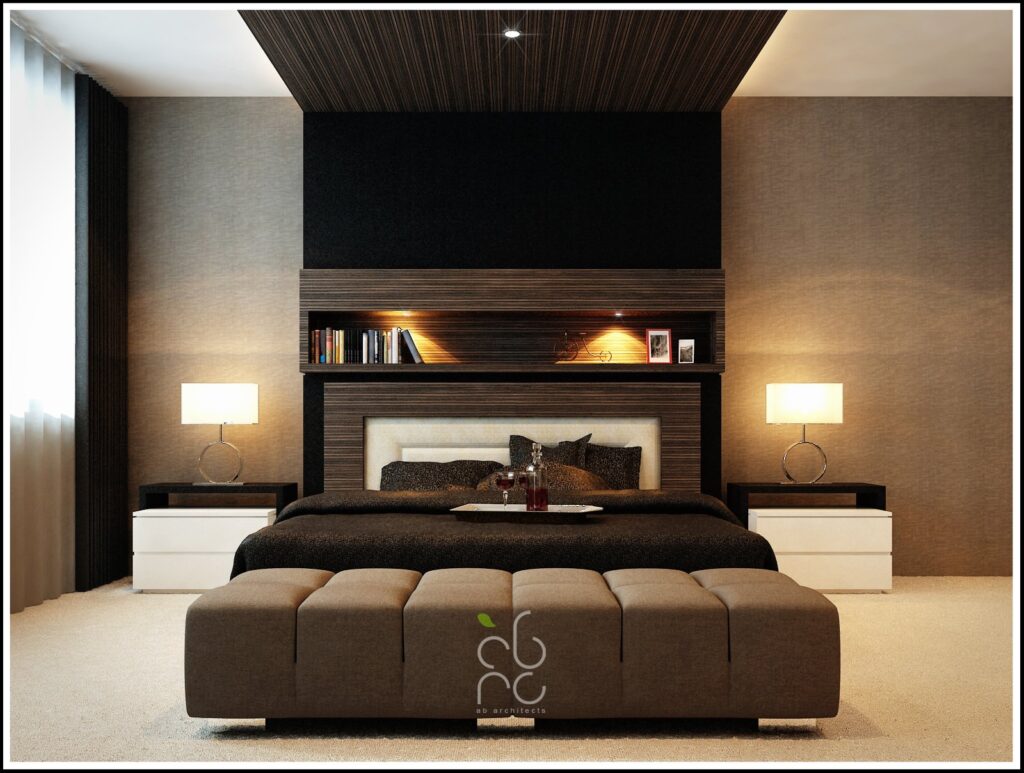
Material Matters: Choosing Quality and Durability
The materials used in your furniture will affect its durability, appearance, and overall feel. Choose materials that are appropriate for your lifestyle and budget. Solid wood is a durable and timeless option, while upholstery fabrics should be chosen based on their comfort, durability, and stain resistance.
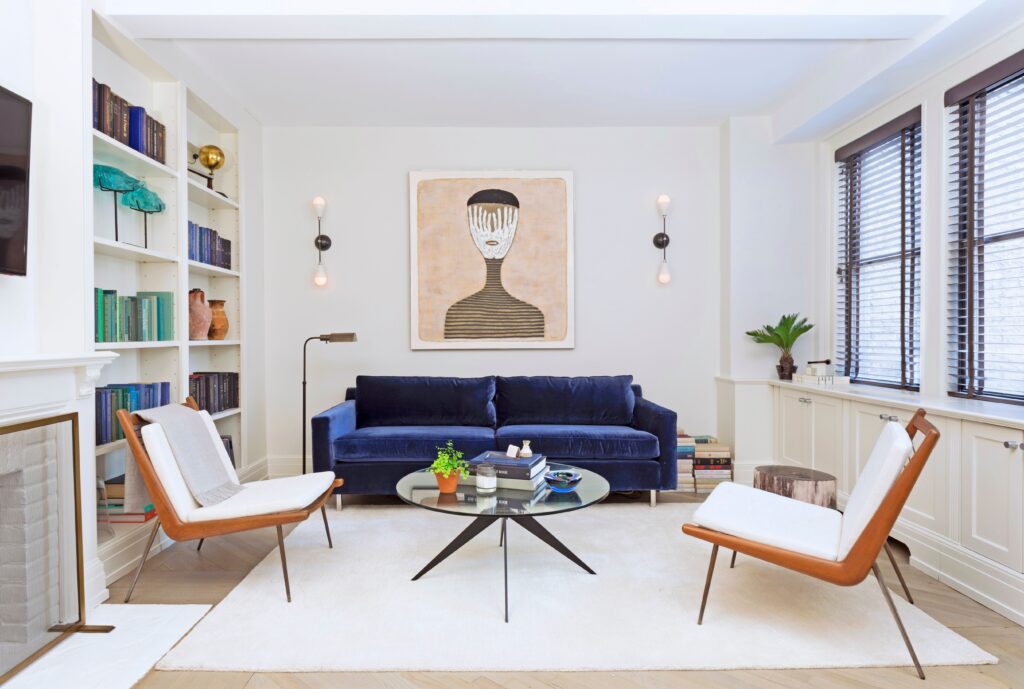
Creating a Focal Point
Every room should have a focal point – a central element that draws the eye and anchors the space. This could be a fireplace, a large piece of artwork, or a statement piece of furniture. Arrange your furniture around the focal point to create a sense of balance and harmony.
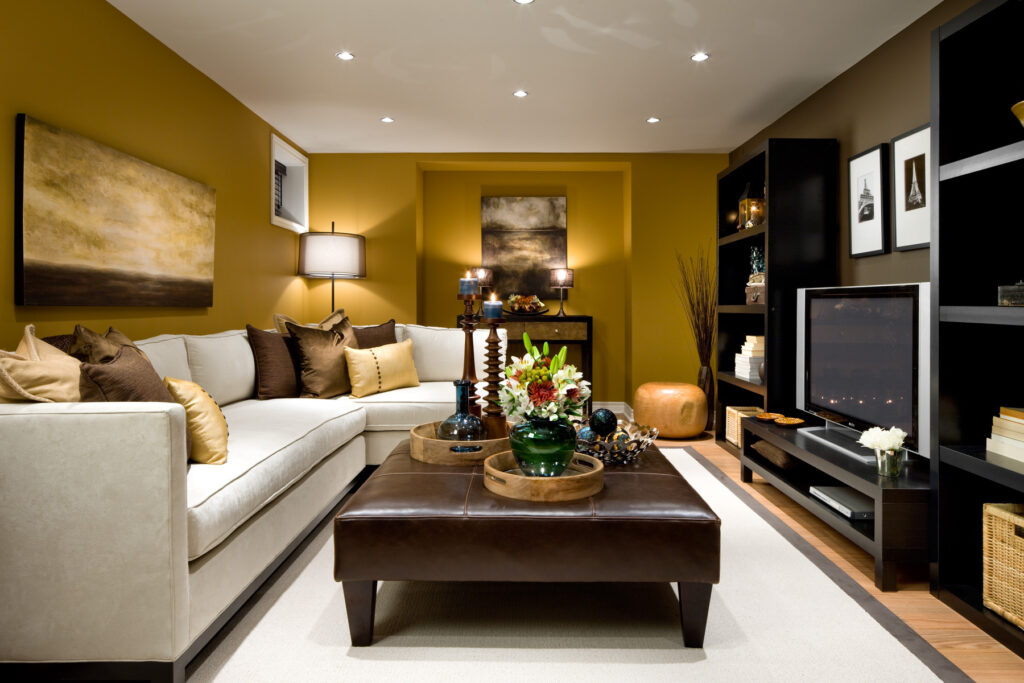
Lighting: Illuminating Your Space
Lighting is often overlooked, but it’s one of the most important elements of interior decorating. It can affect the mood of a room, highlight architectural features, and make a space feel more inviting.
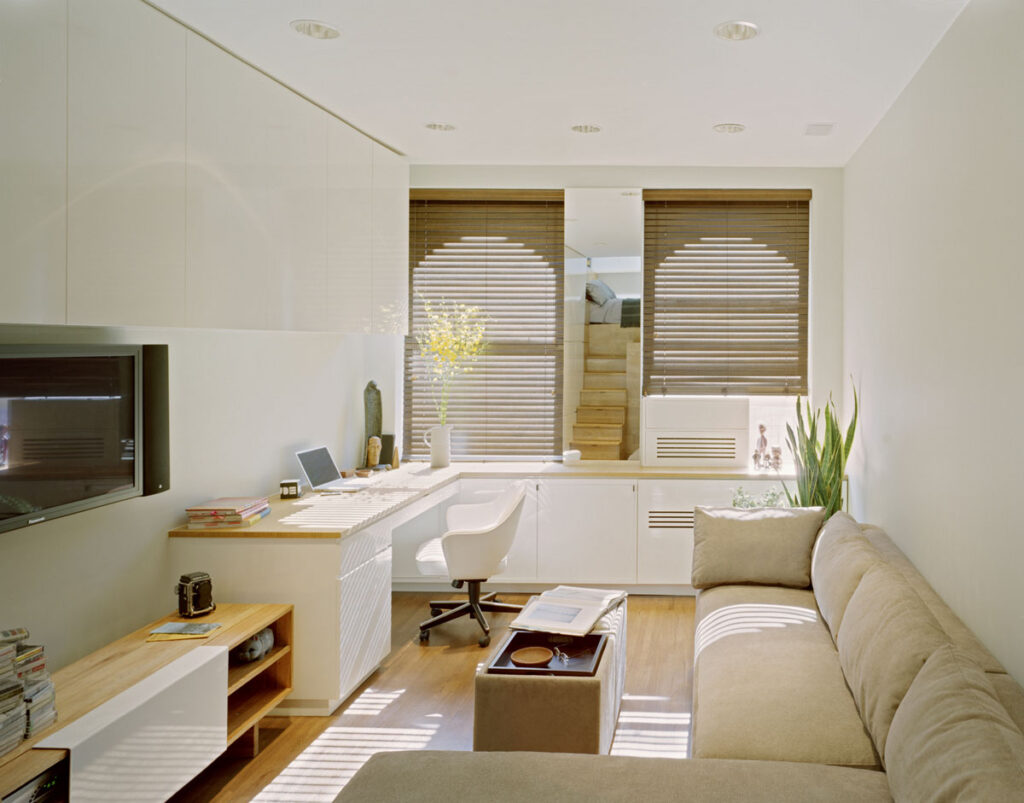
Types of Lighting: Layering for Ambiance and Functionality
There are three main types of lighting:
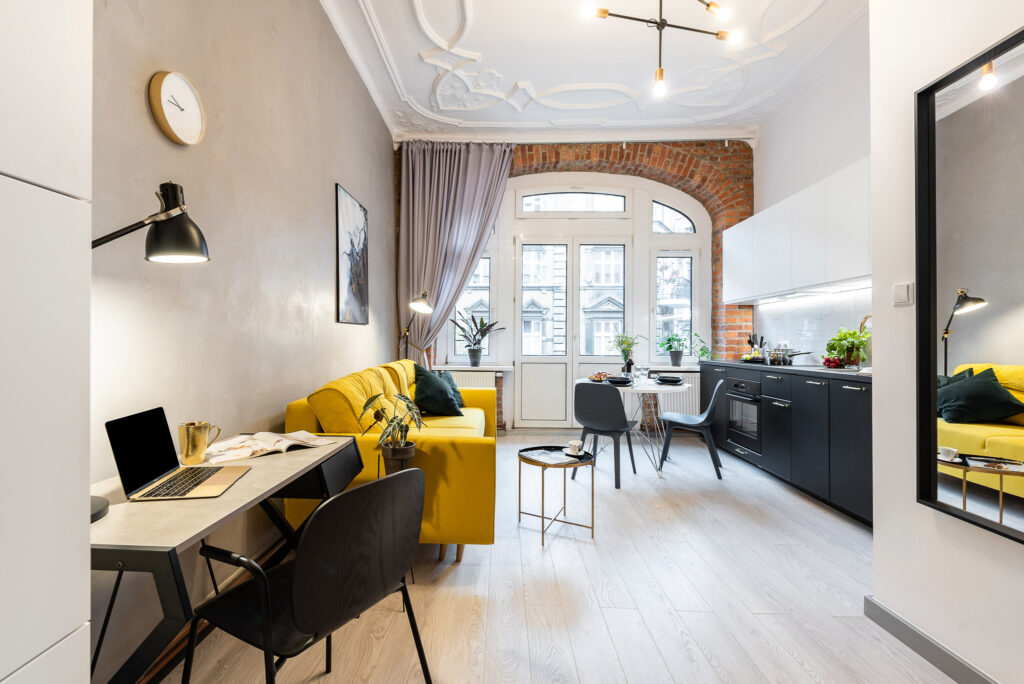
- Ambient Lighting: Provides overall illumination to a room. Examples include overhead fixtures, recessed lighting, and chandeliers.
- Task Lighting: Provides focused light for specific tasks. Examples include desk lamps, reading lights, and under-cabinet lighting.
- Accent Lighting: Highlights specific objects or areas in a room. Examples include spotlights, wall sconces, and picture lights.
Layering these three types of lighting is essential for creating a well-lit and functional space. Use ambient lighting to provide overall illumination, task lighting for specific activities, and accent lighting to add visual interest and highlight your favorite features.
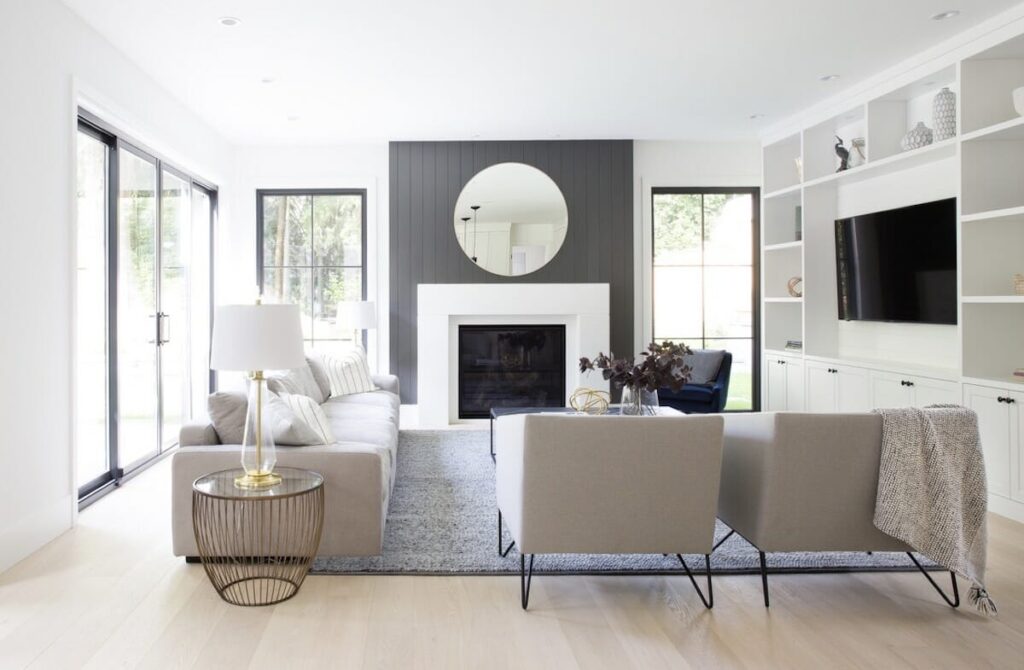
Choosing the Right Light Fixtures
The style of your light fixtures should complement your overall decorating style. Choose fixtures that are appropriately sized for the room and that provide the right amount of light. Consider the color temperature of the light bulbs. Warm light (2700-3000K) creates a cozy and inviting atmosphere, while cool light (4000-5000K) is better for task lighting.
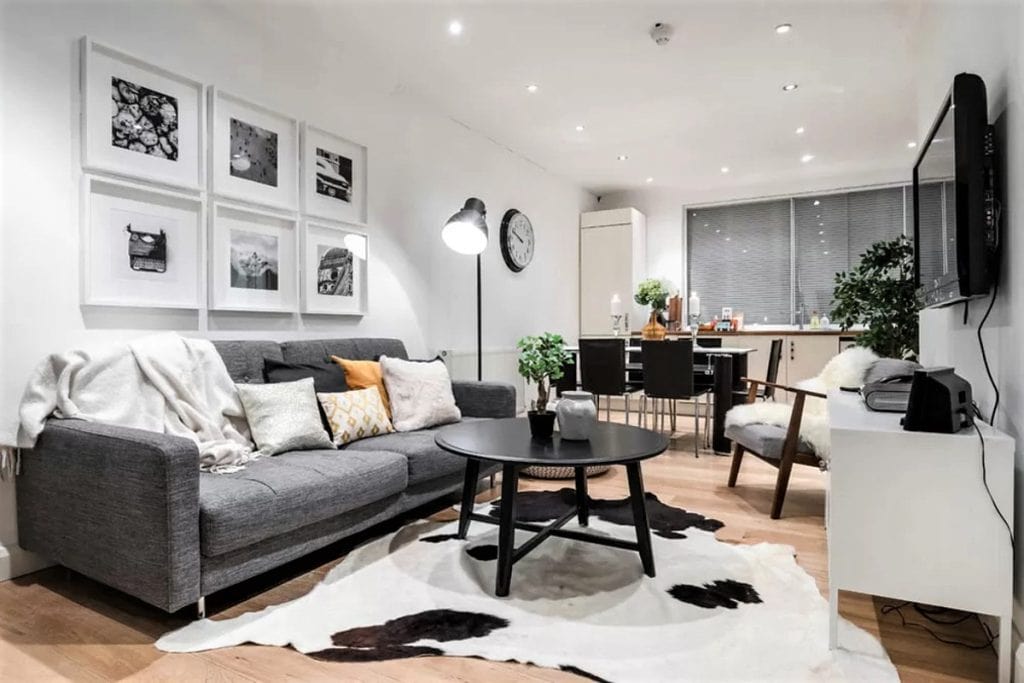
Natural Light: Maximizing Its Potential
Maximize the amount of natural light in your home by keeping windows clean and unobstructed. Use sheer curtains or blinds to filter harsh sunlight and provide privacy. Mirrors can also be used to reflect natural light and make a room feel brighter and more open.
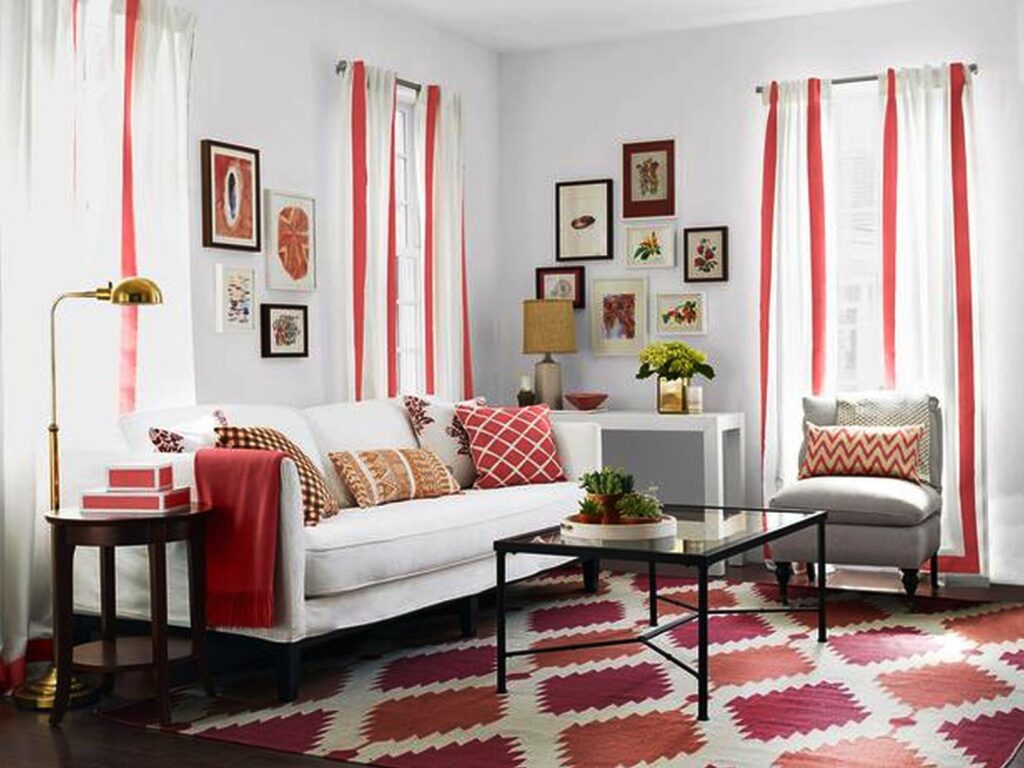
Accessorizing: Adding the Finishing Touches
Accessories are the details that bring a room to life and add personality. They include everything from throw pillows and blankets to artwork, rugs, and decorative objects.
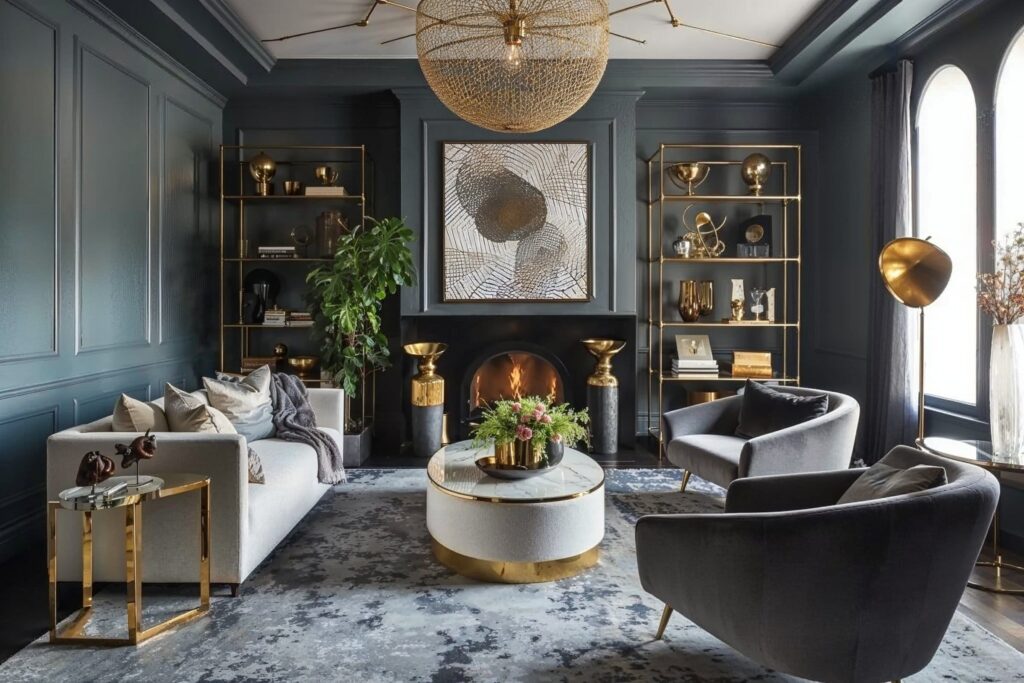
Creating Visual Interest with Texture and Pattern
Texture and pattern are essential for adding visual interest to a room. Mix and match different textures, such as smooth and rough, to create depth and dimension. Use patterns sparingly to avoid overwhelming the space. Consider incorporating patterns in your throw pillows, rugs, and curtains.
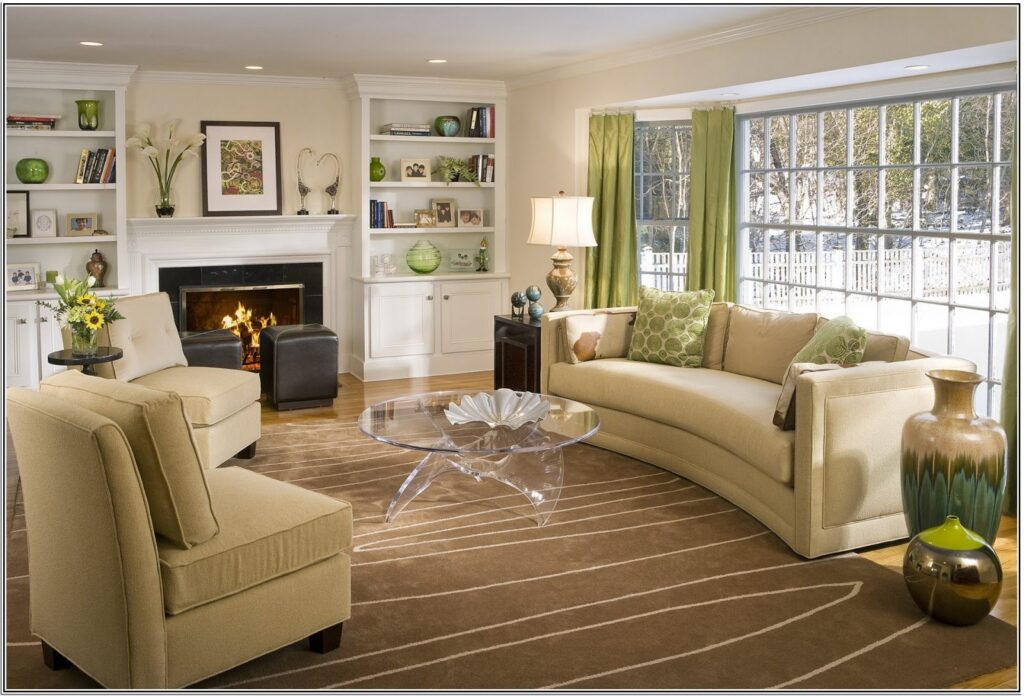
Personalizing Your Space
Accessories are a great way to personalize your space and showcase your personality. Display your favorite books, photos, and travel souvenirs. Choose artwork that you love and that reflects your style. Adding personal touches will make your home feel more inviting and comfortable.
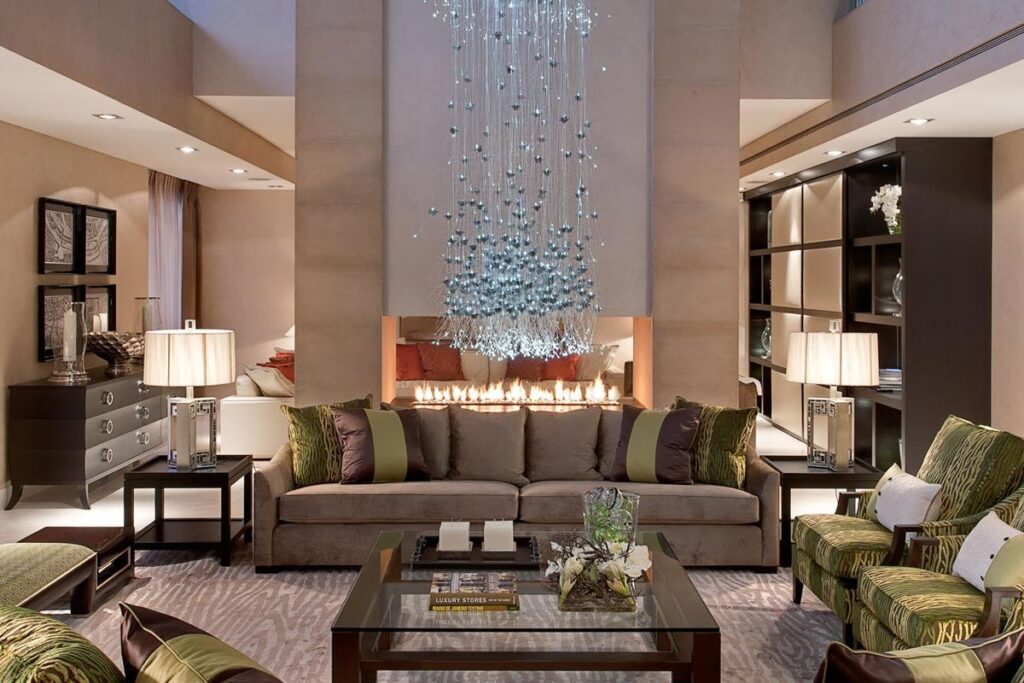
The Power of Plants
Plants can add life, color, and texture to any room. They also purify the air and create a sense of calm and well-being. Choose plants that are appropriate for your lighting conditions and that complement your decorating style.
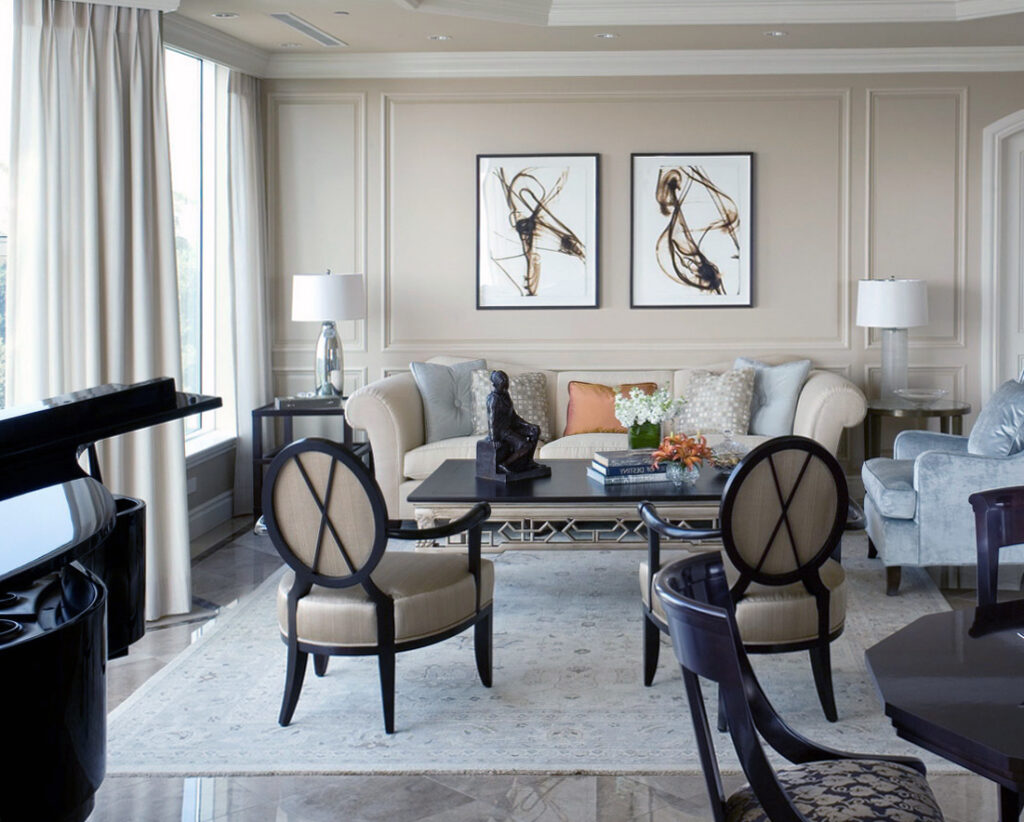
Budget-Friendly Decorating Ideas: Achieving Style Without Breaking the Bank
You don’t need to spend a fortune to create a beautiful and stylish home. There are many budget-friendly decorating ideas that can help you achieve your desired look without breaking the bank.
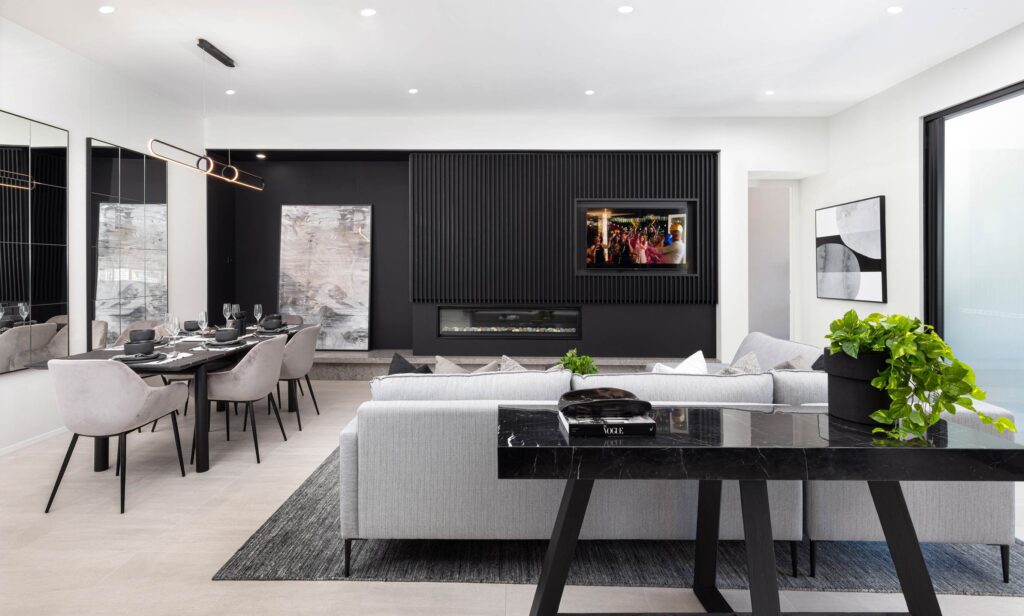
Repurposing and Upcycling: Giving Old Items New Life
Repurposing and upcycling are great ways to save money and create unique and personalized decor. Look for old furniture, accessories, or building materials that you can transform into something new. A vintage suitcase can be turned into a side table, old pallets can be used to create a headboard, and mason jars can be used as vases or storage containers.
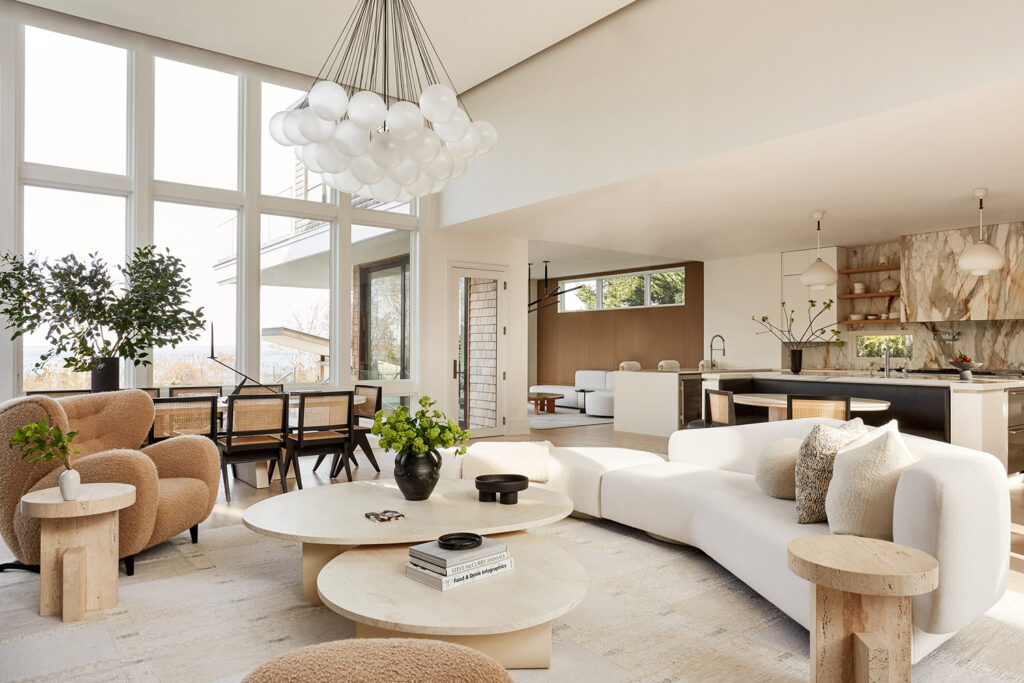
Thrift Store Finds: Unearthing Hidden Treasures
Thrift stores are treasure troves of unique and affordable finds. You can often find furniture, accessories, and artwork at a fraction of the retail price. Be prepared to spend some time searching, but the rewards can be well worth the effort.
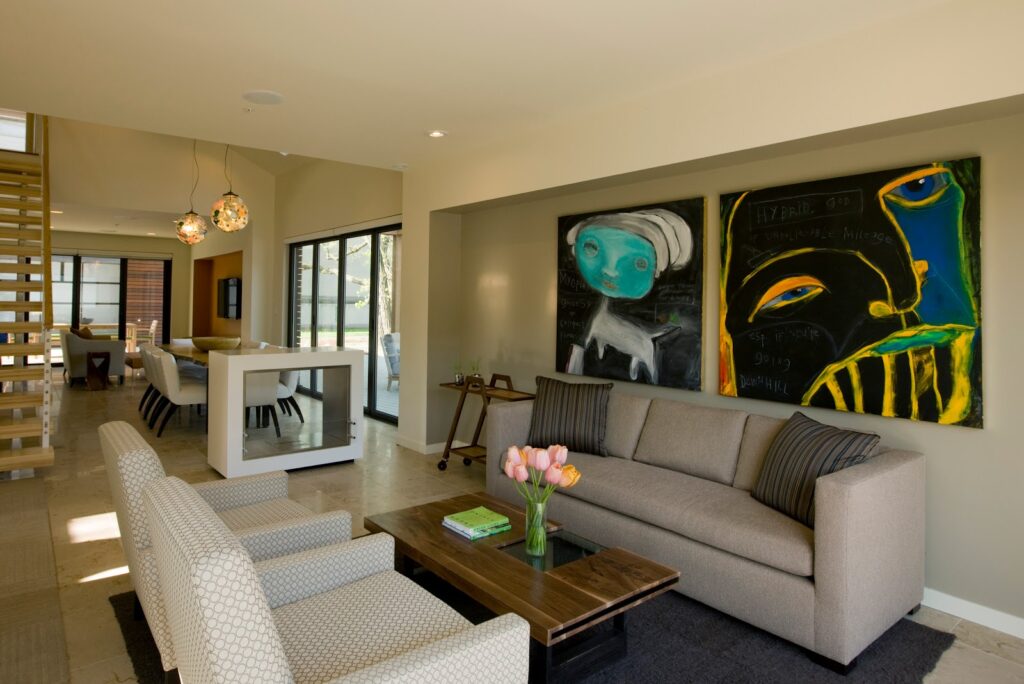
DIY Projects: Creating Custom Decor
DIY projects are a great way to save money and create custom decor that reflects your style. There are countless DIY tutorials available online for everything from painting furniture to making throw pillows to creating wall art. Get creative and have fun!
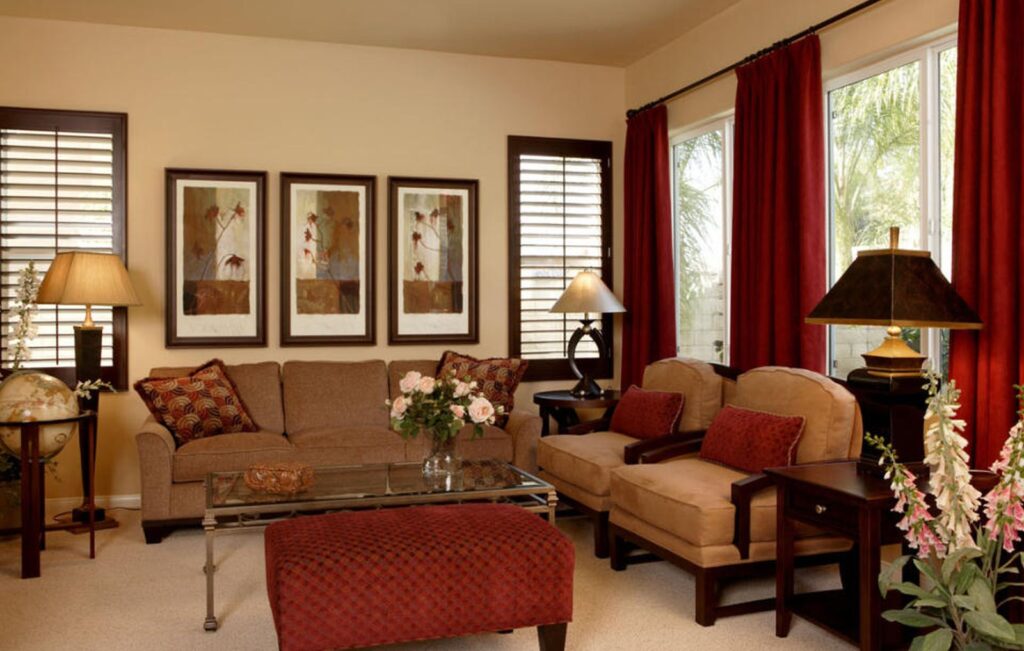
Rearranging Furniture: A Free and Easy Update
Sometimes, all it takes is a simple rearrangement of your furniture to give a room a fresh new look. Experiment with different layouts to see what works best for your space. You might be surprised at how much of a difference it can make.
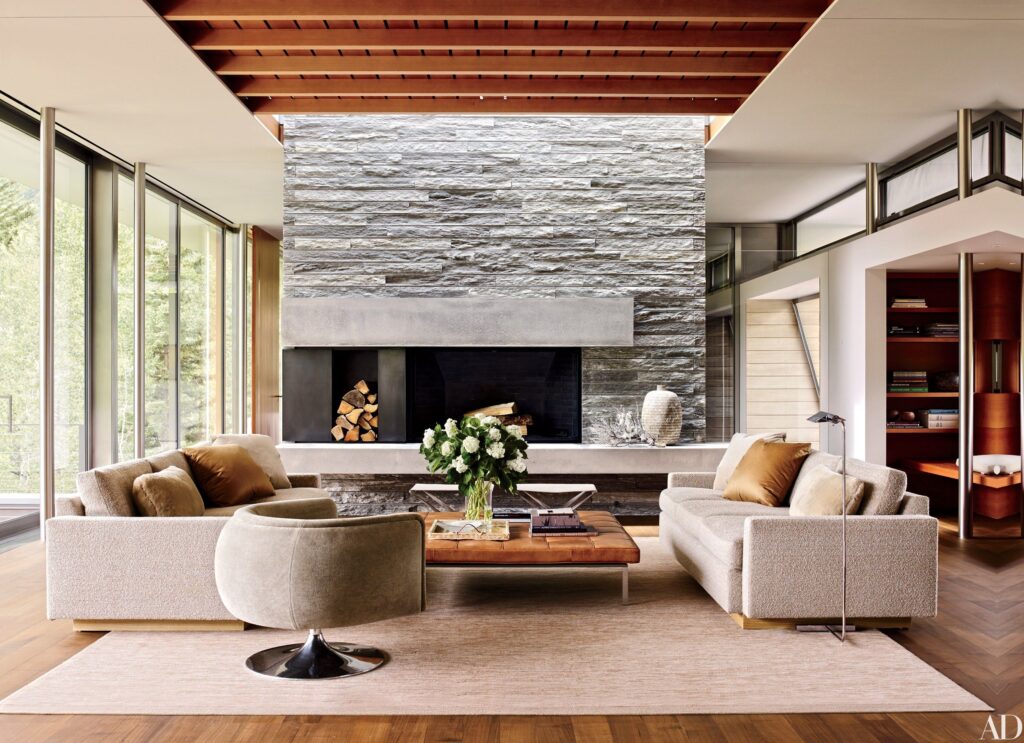
Common Decorating Mistakes to Avoid
Even with the best intentions, it’s easy to make decorating mistakes. Here are some common pitfalls to avoid:
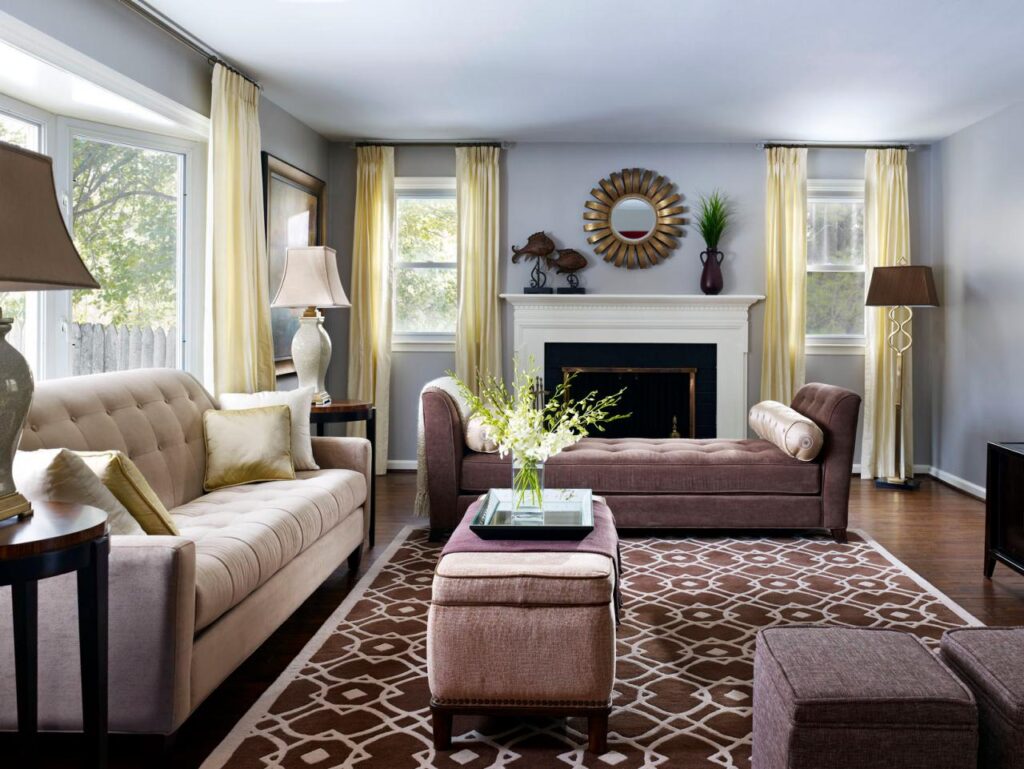
- Ignoring Scale and Proportion: Furniture that’s too big or too small can throw off the entire balance of a room.
- Choosing Paint Colors First: Select your fabrics and key furniture pieces before choosing paint. It’s easier to match paint to fabrics than the other way around.
- Over-Accessorizing: Too many accessories can make a room feel cluttered and overwhelming. Edit your collection and only display items that you truly love.
- Neglecting Lighting: Poor lighting can make a room feel dark and uninviting. Layer your lighting and choose fixtures that are appropriate for the space.
- Following Trends Blindly: Decorate with what you love, not just what’s trendy. Trends come and go, but your personal style is timeless.
- Not Creating a Plan: Starting a decorating project without a plan can lead to costly mistakes. Take the time to develop a design plan before you start buying furniture and accessories.
Embrace the Process: Your Home, Your Style
Ultimately, the most important thing is to create a home that reflects your personality and makes you feel happy and comfortable. Don’t be afraid to experiment, break the rules, and create a space that is uniquely yours. Interior decorating is a journey, not a destination. Enjoy the process and let your creativity shine!
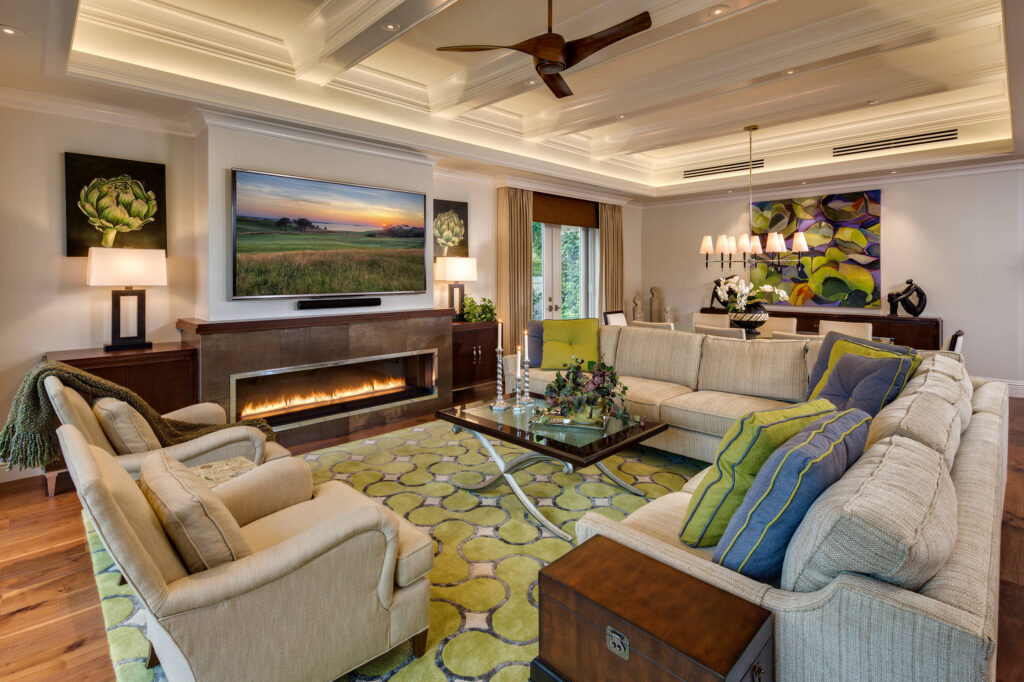
Staying Inspired: Resources for Ongoing Decorating Ideas
The world of interior design is constantly evolving. To keep your inspiration flowing and stay up-to-date on the latest trends, consider exploring these resources:
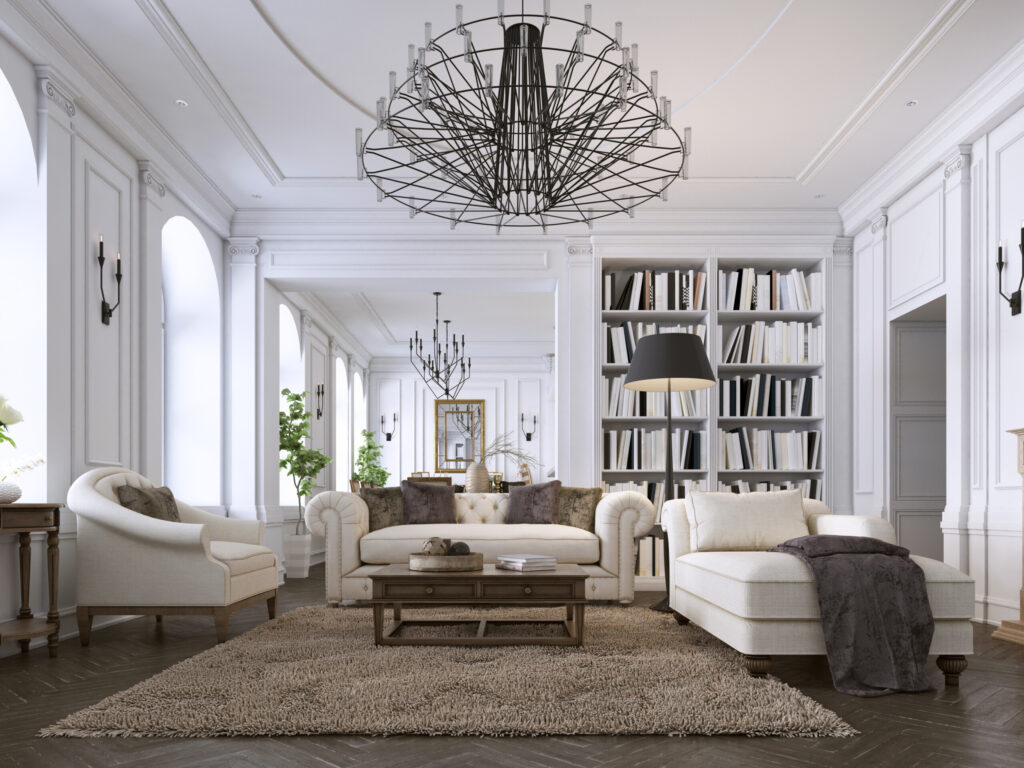
- Interior Design Blogs and Websites: There are countless blogs and websites dedicated to interior design, offering tips, inspiration, and resources. Examples include Apartment Therapy, Design Milk, and Houzz.
- Interior Design Magazines: Print magazines like Architectural Digest, Elle Decor, and House Beautiful offer stunning visuals and expert advice.
- Social Media: Platforms like Pinterest and Instagram are excellent for discovering new decorating ideas and connecting with other design enthusiasts.
- Home Decor Stores: Browsing through home decor stores can spark inspiration and help you visualize different styles and possibilities.
- Open Houses and Model Homes: Visiting open houses and model homes can provide valuable insights into current design trends and space planning strategies.
By continually seeking inspiration and staying informed, you can keep your decorating journey fresh and exciting.
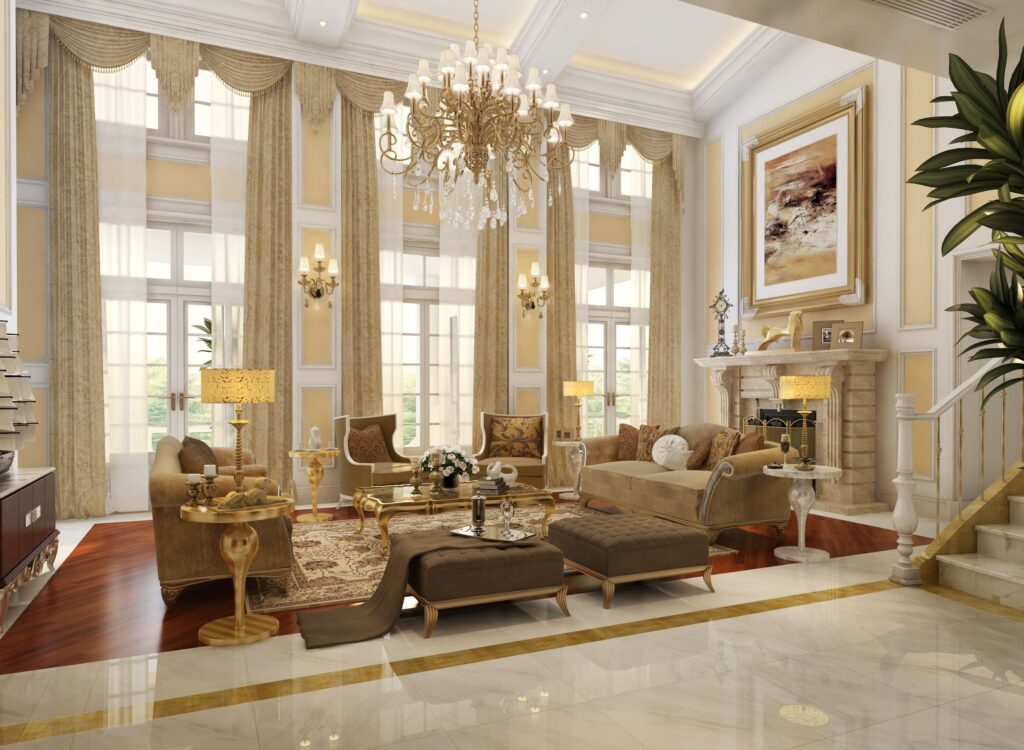
 Nimila
Nimila
